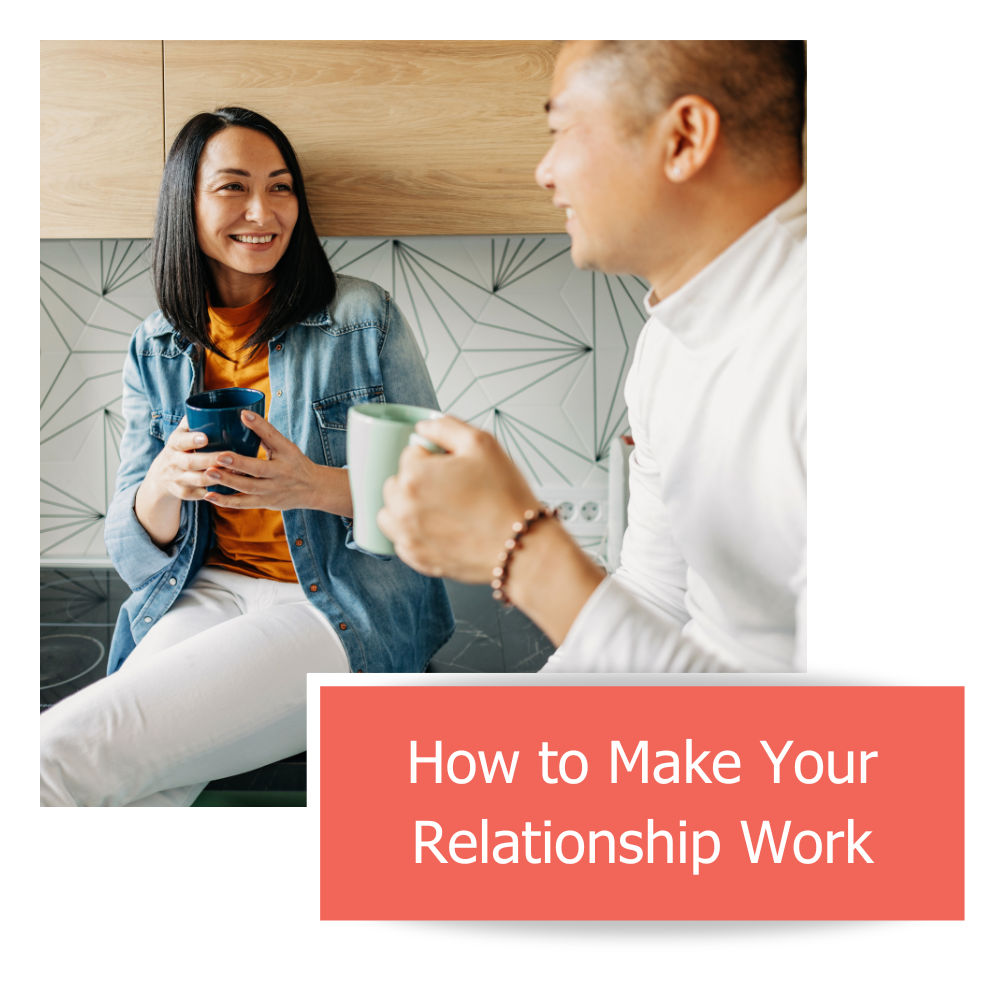What’s the point of marriage?
No, really, this is a serious question. What’s the point? If you don’t have a goal, objective, or specific outcome in mind, or if you don’t know what you and your partner’s needs are and how best to fulfill them, how can you know whether or not you’re being successful in your partnership?
Having the wrong goals or “point” to your marriage can leave you feeling frustrated, alone, or even reeling in confusion or anger. Speaking of anger (this will all tie together, so stay with me here), I saw a quote on social media the other day that got me really upset:
“You deserve to be with somebody who makes you happy. Somebody who doesn’t complicate your life. Somebody who won’t hurt you.”
This quote got me riled up because this is the kind of hogwash cooked up by a social media manager in desperate need of some validating “likes.” It can destroy relationships because it is offering an ineffective platitude that people will take as serious advice.
Is unending happiness the goal? Sounds boring.
So, here’s another honest question: since when did the pinnacle of relationship achievement become existing in a constant, unchanging state of happiness, simplicity, and total safety? When did the fantasy of “and they lived happily ever after“ stop being the end of a storybook for kids and turn into literal #lifegoals?
I don’t remember “providing your partner with an endless supply of happiness” being in the details for me or my wife when we signed up for this marriage thing. Social psychologist Eli Finkel argues in his book, The All or Nothing Marriage, how, in today’s world, couples expect more and more of each other. We rely on each other for many aspects of socialization and support that, prior to the 20th century, many people found outside of their marriages.
Don’t get me wrong, I think happiness is great. It’s necessary in all aspects of life, and especially in a relationship. But it’s also a fluid emotion that comes and goes based on how your stomach reacts to the burrito you ate for lunch today, your coworker’s irritable habits, what’s happening in the White House this week, if your baseball team wins or loses, or who lives or dies on Game of Thrones.
Happiness is not a strong, stable foundation upon which to build lasting, committed love. It is simply too unstable, fleeting, and constantly in flux, and the ways in which we achieve happiness changes as we change over time.
Honestly, sustained and immutable happiness is arguably the most ineffective goal you could set for your relationship because it’s not possible to achieve. The reality of happiness, just like any other emotion, is that it comes and goes, just like the in-laws during the holidays, 80’s fashion, or stomach cramps.
Well, today it’s time to bust out another cold, hard truth:
The point of marriage is not happiness. The point of marriage is growth.
The Human Growth Machine
The key to becoming a truly successful couple is to take action and expand your comfort zone. Marriage is what Dr. David Schnarch, author of the book Passionate Marriage, calls a “Human Growth Machine.” And Finkel also posits that, in our world, “a new kind of marriage has emerged, one that can promote self-discovery, self-esteem, and personal growth like never before.” I love the idea of having a growth-centered marriage. That is something I can achieve, and it feels satisfying to grow and improve. It is a tangible goal.
Regarding goals: in the last few years I started doing something I never thought I’d do. I lift weights.
I used to be a slender little guy. I once dropped a girl when I was country dancing and was so embarrassed by my weak muscles that I never went back. Then I hit the gym. I remember when I first started lifting, I squatted 225 pounds and my coach was like, “Dude, Nate! That’s awesome!”
I was so proud of myself! So, I kept at it.
A few years later, after grinding away at the gym every week, I now squat around 345 pounds. Big improvement, right? And every time I add another pound, I feel like a champion because growth is satisfying and progress feels amazing.
How to keep your marriage strong for the long run
Now I apply the principles I used in the weight room to my marriage. For example, I used to get anxious when my wife was feeling sad or stressed. And I used to snap at her if I felt attacked or threatened. For over a year I’ve been working to improve myself in this area. I practice self-soothing, taking deep breaths, and thinking before I speak, and giving my wife the benefit of the doubt and trying to understand her perspective when I feel hurt.
I’m definitely not perfect (a little secret: nobody is!), but I’m getting better at managing conflict between us and using it as an opportunity for understanding and growth. I’m less stressed out when she is. I snap at her less. My wife even smiles compassionately at me when she sees me taking deep breaths, or using the plans we’ve put in place to help us fight better and love smarter.
She’s commented that I’m improving, and because of that, we’re improving as a couple. But, like working out, it’s not easy, and especially not at first. It stretches your comfort zone. It pushes you to your limits. It expands your capacities as a human being. And this painful stretching and expanding and growing means that, sometimes, your partner and your marriage will not make you happy.
Honestly, marriage is a challenge. And it’s a good one because marriage reveals your limitations and exposes your weaknesses, flaws, and vulnerabilities. Marriage makes you painfully aware of how impatient you might be, of your struggles to say “no” to things that aren’t important and “yes” to things that are, and of how challenging it is to navigate your differences when you’re feeling overwhelmed or stressed, or simply hangry.
Marriage challenges you to deal with sickness, tragedy, financial stresses, changes in faith or beliefs, job loss, weight gain, raising kids, losing parents and other family members, and you have to do it all while supporting and satisfying another emotional human being!
You can’t tackle this stuff and come out on the other side still in love with each other by remaining the exact same people you were when you started. You can’t go through all of that together while remaining in perpetual bliss. You have to constantly grow and evolve into the version of you that’s capable of facing and overcoming the unique challenges that life throws at you at any given moment.
That dynamic won’t feel like perfection, but that’s actually what you want. In fact, Dr. John Gottman argues strongly in favor of a good enough marriage when he states that today, couples “expect to be treated with kindness, love, affection, and respect. They do not tolerate emotional or physical abuse. They expect their partner to be loyal. This does not mean they expect their relationship to be free of conflict. Even happily married couples argue. Conflict is healthy because it leads to greater understanding.”
You will be confronted with uncomfortable truths throughout your marriage. It might be about sex, or money, or time spent together, or parenting, or all of that. Things won’t always work out how you plan them, and plans may need to change if you’re going to have the relationship you want.
Having someone challenge you to expand and grow can make things feel worse before they get better. It may even put the relationship on the line if you or your partner refuse to confront your own flaws, or if you won’t take responsibility when things go wrong. If the Four Horsemen come charging into the dynamic, then you might be doomed if you don’t find ways to fight them off.
But this is what love is really about. It is not always about always pleasing your partner, or always being pleased yourself. Instead, it is about supporting your partner.
Pleasing your partner means you make sure they are happy and comfortable and worry-free, and there will be times you must do that. But if that’s your primary goal, it might cause you to be overly agreeable and accommodating even when your partner is being unkind or hurtful. And we all make those mistakes, but pleasing your partner also means shielding your partner from anything that could make them feel challenged or uncomfortable.
Like the uncomfortable experience of growth.
Supporting your partner means you have their best interests at heart and you intentionally act to uphold and achieve those interests. It means you stand by their side, you help them, you have their back, and sometimes it means you engage in conflict about difficult truths and regrettable incidents. True partners dedicate themselves to the person they love and to the bond they share, even when those acts of dedication might be temporarily painful due to the positive growth it causes.
Dedication to that positive growth forces you to identify and open up about your weaknesses, insecurities, and fears is exactly what leads to the periods of happiness, trust, connection, passion, and commitment.
Is that the kind of love you want? Or are you willing to settle for less?
A Happier Relationship Starts Today
Subscribe to Gottman Love Notes and get regular relationship tips and resources from the experts, plus a monthly free couples exercise and access to special pricing on Gottman products.








